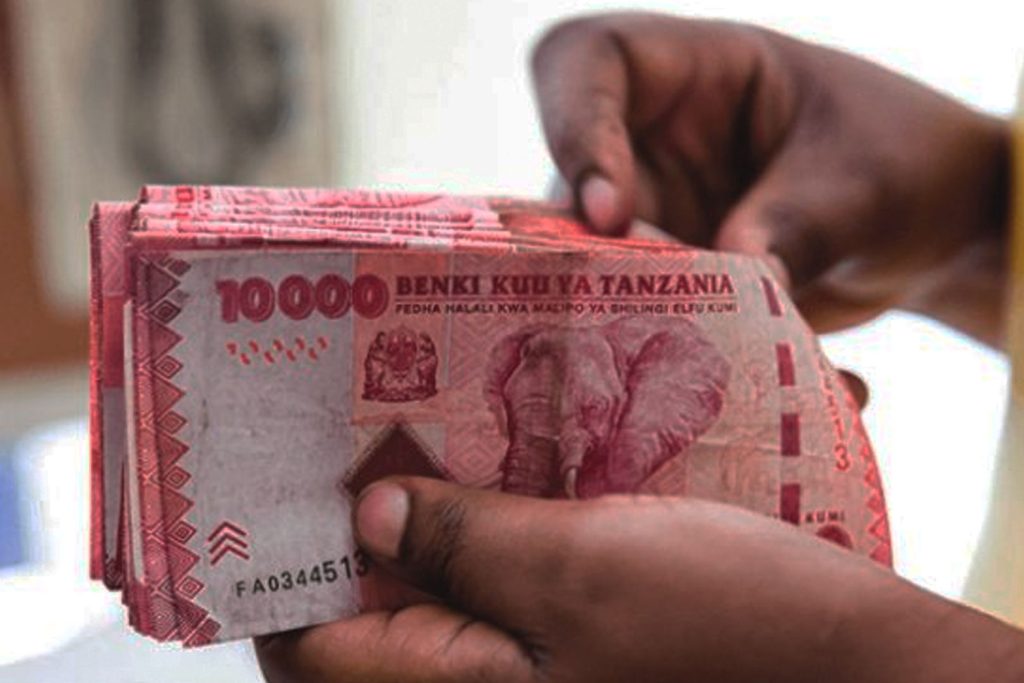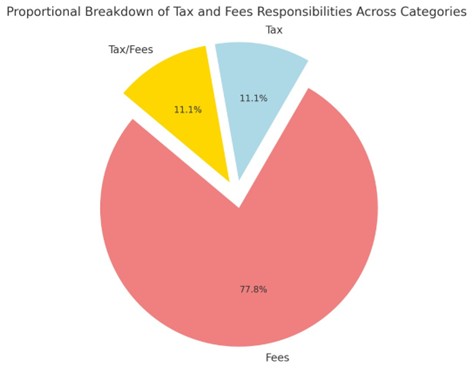“Taxes are the price we pay for a civilized society,” as the saying goes. Tanzania’s tax system exemplifies this principle by serving as a vital pillar of the nation’s economic development.
It is central in financing infrastructure projects, public services, and other critical national priorities. This robust tax administration is supported by a comprehensive legal framework, which underpins the entire system and ensures its functionality across diverse sectors.
Legal Framework
Tanzania’s tax system is governed by a comprehensive legal framework that extends beyond the core laws such as the Income Tax Act (2004), Value Added Tax (VAT) Act (2014), and Tax Administration Act (2015).
Key complementary laws include the Excise (Management and Tariff) Act (1952), regulating excise duties on goods like alcohol, tobacco, and petroleum, and the Customs Tariff Act (1976), which aligns with the East African Community (EAC) Customs Management Act (2004) for import and export duties.
The Local Government Finance Act (1982) enables Local Government Authorities to collect property taxes, business licenses, and other levies, while the Land Act (1999) and Village Land Act (1999) govern land-related taxes.
Sector-specific laws such as the Mining Act (2010) and Petroleum Act (2015) address royalties and revenues in extractive industries, while the Tanzania Investment Act (1997) and Export Levy Act provide tax incentives and export regulations.
Other important statutes include the Stamp Duty Act (1972), Business Licensing Act (1972), Gaming Act (2003), and Environmental Management Act (2004), which introduce targeted taxes and fees.
Additionally, the Public Finance Act (2001), Financial Institutions Act (2006), and Tanzania Ports and Wildlife Authority Acts regulate specific industries and services.
Together, these laws establish a robust and transparent tax system that supports Tanzania’s development goals while ensuring taxpayer categorization promotes fairness and aligns with the country’s diverse economic activities.
Tax Payer Categories
Tanzania’s tax system categorizes taxpayers based on their economic activities, income levels, and legal structures, ensuring that tax obligations align with financial capacities and promote fairness. Individual taxpayers include salaried employees, self-employed persons, and informal sector participants.
Salaried employees are subject to Pay-As-You-Earn (PAYE), a progressive tax deducted from monthly salaries, while self-employed individuals must file annual tax returns and pay taxes based on declared profits.
READ RELATED: Tanzania’s Tax Reforms: Can They Drive Inclusive Economic Growth?
Informal sector participants are often taxed through presumptive tax schemes, simplifying compliance for small businesses and informal workers.
Small and Medium Enterprises (SMEs) are classified based on turnover, with those earning less than TZS 100 million qualifying for the presumptive tax scheme, while larger SMEs must register for VAT and comply with corporate tax requirements.
Corporate entities, including domestic and foreign companies, partnerships, and trusts, are taxed on their profits, with domestic companies subject to a corporate income tax rate of 30%.
Foreign companies operating through branches in Tanzania are taxed on local operations and may face withholding taxes on remittances. Large taxpayers, such as multinational corporations and major mining companies, are managed by the Large Taxpayers Department of the Tanzania Revenue Authority (TRA) due to their significant tax contributions and sectoral importance.
Government agencies and parastatals are taxed on revenue-generating activities, while Non-Governmental Organizations (NGOs) are generally exempt from corporate income tax but may be liable for VAT or PAYE on employee salaries.
Professionals and consultants, including lawyers, doctors, and independent contractors, are taxed on income earned through fees or services, often subject to withholding taxes.
Non-residents earning income in Tanzania are taxed through withholding taxes on payments for dividends, royalties, and technical services, while branch profits tax applies to remittances sent to parent companies.
Importers and exporters contribute through customs duties, VAT on imports, and export levies, aligning with trade regulations. Businesses operating within Special Economic Zones (SEZs) and Export Processing Zones (EPZs) benefit from specific tax regimes, such as reduced corporate tax rates, VAT exemptions, and customs duty waivers.
These taxpayer categories ensure that Tanzania’s tax system is comprehensive, equitable, and tailored to the country’s diverse economic activities, effectively supporting national revenue goals under the administration of dedicated collectors.
Tax Collector Categories
Tanzania’s tax collection is managed by a range of government bodies, each with specific responsibilities to ensure effective revenue mobilization.
The Tanzania Revenue Authority (TRA) is the primary agency tasked with collecting national-level taxes, including income tax, Value Added Tax (VAT), excise duties, customs duties, and withholding taxes.
TRA also oversees large taxpayers, enforces compliance, and collaborates with the Ministry of Finance to implement tax policies.
At the local level, Local Government Authorities (LGAs) collect taxes and levies such as property taxes, business license fees, market dues, agricultural produce cess, and service levies under the Local Government Finance Act (1982). These revenues support local development and service delivery.
In addition, various regulatory authorities collect sector-specific fees. For example, the Energy and Water Utilities Regulatory Authority (EWURA) collects licensing fees in the energy and water sectors. At the same time, the Tanzania Communications Regulatory Authority (TCRA) imposes spectrum fees on telecommunications and broadcasting services.
The Land Transport Regulatory Authority (LATRA) handles transport licensing fees, and the Tanzania Bureau of Standards (TBS) collects certification and compliance fees.
Sector-specific agencies such as the Tanzania Ports Authority (TPA) and Tanzania Wildlife Authority (TAWA) generate revenue through port usage fees, park entry fees, and tourism levies.
Similarly, the Tanzania Mining Commission collects royalties, license fees, and charges related to mining activities, and the Business Registration and Licensing Agency (BRELA) handles fees for business registrations and industrial licensing.
Other entities also contribute to revenue collection. The Immigration Department collects visa fees, residence permits, and citizenship-related charges, while the judiciary imposes court fees and fines.
Social security contributions to the National Social Security Fund (NSSF) and Public Service Social Security Fund (PSSSF), though not taxes, are mandatory payments that support pensions and welfare programs.
Environmental management bodies like the National Environmental Management Council (NEMC) impose fees on waste management and emissions to promote sustainable practices.
Lastly, agencies managing Special Economic Zones (SEZs) and Export Processing Zones (EPZs), such as the Export Processing Zones Authority (EPZA), oversee tax incentives and collect fees to attract investment and facilitate trade.
This multifaceted approach to tax collection ensures diversification, efficiency, and equity in revenue generation, supporting Tanzania’s national and local development goals.
Regional and International Context
Tanzania’s system is competitive within the East African Community (EAC), with its VAT rate of 18% and the corporate tax rate of 30%, aligning closely with neighbours like Kenya, Uganda, and Rwanda.
However, challenges such as a narrow tax base and a large informal sector are common across the region. Tanzania’s adoption of the EAC Customs Management Act (2004) ensures harmonization of customs duties and trade regulations within the bloc, facilitating regional trade.
Digital tax systems, such as Electronic Fiscal Devices (EFDs) and online platforms, mirror innovations in countries like Rwanda to improve compliance.
Globally, Tanzania aligns with international standards, including the OECD tax principles and efforts to combat Base Erosion and Profit Shifting (BEPS).
Transfer pricing regulations under the Income Tax Act (2004) and participation in the Global Forum on Transparency and Exchange of Information demonstrate a commitment to tax transparency and anti-avoidance measures.
Additionally, adherence to the EAC Common External Tariff (CET) and environmental levies aligns with global trade and sustainability goals. Despite progress, challenges in enforcement and expanding the base remain, but ongoing reforms position Tanzania well in the regional and global tax landscape.
End Note
Tanzania’s tax system represents a comprehensive and adaptive framework, effectively balancing revenue generation with economic growth and social development.
While it has positioned the country as a competitive player regionally and globally, there remain opportunities for improvement.
The next article will delve into the operational aspects of the system, examining policy implementation, collection processes, and compliance enforcement.
It will highlight the impact of digital innovations like Electronic Fiscal Devices (EFDs) and the collaborative efforts of the TRA, LGAs, and other bodies, uncovering both the challenges and opportunities that shape the system’s role in driving sustainable national development.



